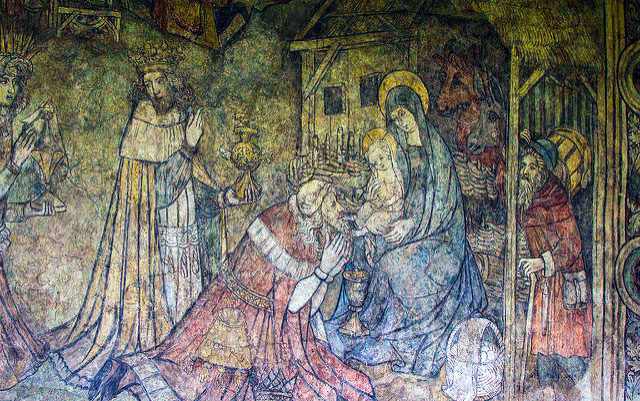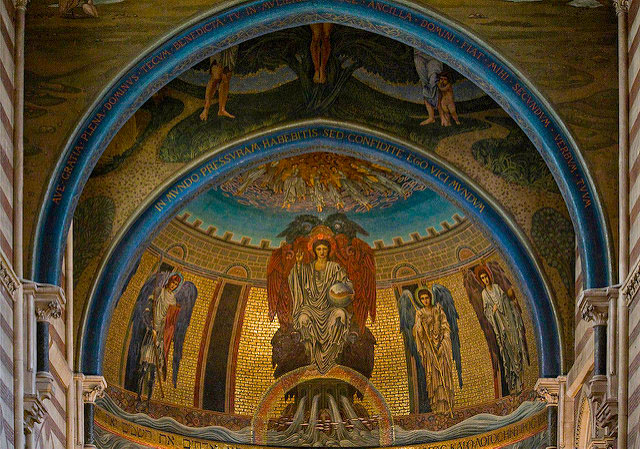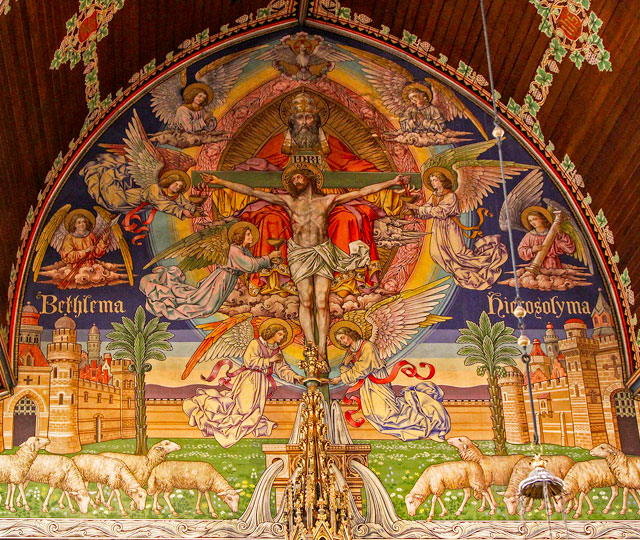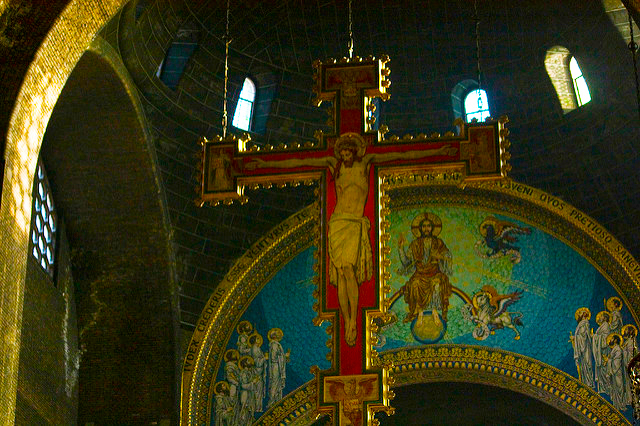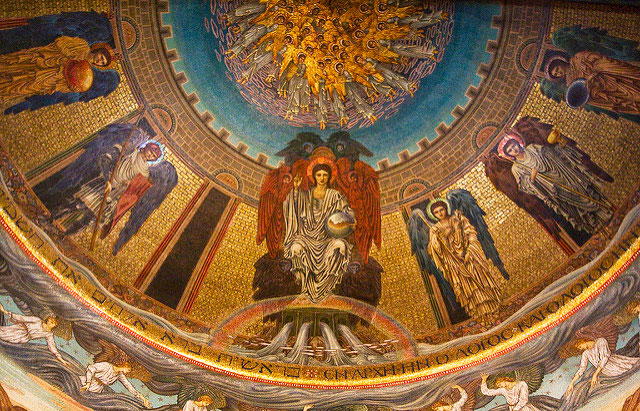For Christ’s love compels us, because we are convinced that one died for all, and therefore all died. And he died for all, that those who live should no longer live for themselves but for him who died for them and was raised again. So from now on we regard no one from a worldly point of view. Though we once regarded Christ in this way, we do so no longer. Therefore, if anyone is in Christ, the new creation has come: The old has gone, the new is here! All this is from God, who reconciled us to himself through Christ and gave us the ministry of reconciliation: that God was reconciling the world to himself in Christ, not counting people’s sins against them. And he has committed to us the message of reconciliation. (2 Corinthians 5:14-19)
Love compels us. Such powerful words! Paul has good news to bring and he wants to get it out to as many as he can — could love do any less than that? And Paul is quite convinced that Christ died for all, with the consequence that all died. In other words, there is no one to whom this does not apply. What Christ accomplished by his death on the cross, he accomplished for us all.
But what does it mean that “all died”? In his letter to the Christians at Rome, Paul speaks again about the death of Christ and its relation to us all. He contrasts Adam’s faithless act with Christ’s faithful death on the cross: “Consequently, just as one trespass resulted in condemnation for
all people, so also one righteous act resulted in justification and life for
all people” (Romans 5:18). Adam’s deed brought condemnation for all people (for all humanity is connected), so also Christ’s righteous deed — his death for all — brought life for all (for all humanity is connected). Just a few verses later, in Romans 6, Paul shows how this works:
For we know that our old self was crucified with him so that the body ruled by sin might be done away with, that we should no longer be slaves to sin — because anyone who has died has been set free from sin. Now if we died with Christ, we believe that we will also live with him. For we know that since Christ was raised from the dead, he cannot die again; death no longer has mastery over him. The death he died, he died to sin once for all; but the life he lives, he lives to God. In the same way, count yourselves dead to sin but alive to God in Christ Jesus. (Romans 6:6-11)
We died with Christ at the cross and have, through this, been set free from sin. With Christ, we died to sin; it no longer has any power over us. With Christ, we also died to death; it no longer has any dominion over us. Paul is confident that since we died with Christ we will also live with him. He urges us, then, to reckon this to be so, to trust in the truth of it, to count ourselves dead to sin but alive to God. Our reckoning does not make it so — it is true whether we reckon it or not — but is our positive response to the truth. It is how we begin to live out the truth (see
Faith and Our Inclusion in Christ).
So likewise, in 2 Corinthians 5, Paul says, “And he died for
all, that those who live should no longer live for themselves but for him who died for them and was raised again.” Christ died for all and in him all are made alive. The response of faith is to yield to that life — his life — which is always about Father, Son and Holy Spirit. “I have been crucified with Christ and I no longer live,” Paul says, “but Christ lives in me. The life I now live in the body, I live by faith in the Son of God, who loved me and gave himself for me” (Galatians 2:20).
This is why Paul no longer regards anyone from a “worldly point of view.” That old way has been superseded and no longer makes sense to him. Everything has changed — or perhaps we should say that the truth of everything has been
revealed — by the death and resurrection of Christ. “There is neither Jew nor Gentile, neither slave nor free, nor is there male and female, for you are all one in Christ Jesus” (Galatians 3:28). Christ has died for all, all have died with him, therefore all will be made alive with him. The new creation has come.
In Ephesians 1, Paul says we are chosen in Christ from before the creation of the world, chosen for God’s purpose of bringing all things in heaven and on earth to unity under Christ. This means, then, that all are chosen, that all are in Christ (see
Chosen in Christ for the Unity of All Things). This unity of all things is what the new creation is about.
Paul now regards everyone through the reality of the new creation.
The old is gone. It died in the death of Christ, the death in which we all died.
The new is here! Christ was raised from the dead, so we also will all be raised with him. “For as in Adam all die, so in Christ all will be made alive” (1 Corinthians 15:22).
The death of Christ that became our death to sin, the life of Christ which becomes our life, the new creation — “All this is from God, who reconciled us to himself through Christ.” It is this ministry and message of reconciliation that has been committed to Paul, the message love compels him to bring, the message that “God was reconciling the world to himself in Christ, not counting people’s sins against them.”
In the death of Christ on the cross, God was reconciling the whole world to himself, and he does not count our sins against us. The word for “count” here is the same as in Romans 6:11. God does not “count” our sins against us; we should therefore “count” ourselves dead to sin and alive to God. Christ died for us all, therefore we all died to sin. We are all forgiven and set free to live with God in the unity of all things.
Now, note the direction of reconciliation here. In Christ, God was reconciling the world to himself, not himself to the world. God was turning the world back to himself, not himself back to the world, for God has never, ever turned away from us; but we turned away from him. So Paul’s ministry was to bring this message of reconciliation in Christ, which is the gospel:
We are therefore Christ’s ambassadors, as though God were making his appeal through us. We implore you on Christ’s behalf: Be reconciled to God. God made him who had no sin to be sin for us, so that in him we might become the righteousness of God. (2 Corinthians 5:20-21)
There is no impediment to reconciliation with God; it has all been taken care of in Christ. All that is left is the response of faith, and even that faith is itself a gift of God through the Holy Spirit. “Be reconciled to God,” Paul says. Christ died the death that sin imposed on him, and in his death we all died to sin. His death, in which we all share, has “resulted in justification and life for all people.” Reckon it so and walk with Christ in this new creation.




